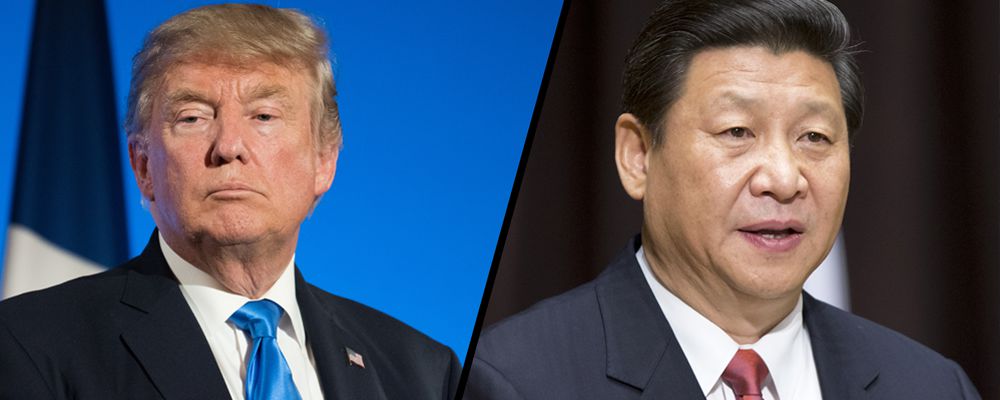The US China trade dispute could become a permanent feature of the global economy
- Thursday, July 11, 2019
 President Trump changed the tone and direction of the on-going US China trade negotiations when he accused China of reneging on the terms of the draft trade agreement. In doing so he quickly reinstated a 25% tariff on US$200bn of Chinese goods ranging from chemicals to consumer goods like seafood, luggage and electronics coming into the USA. The sticking point seems to be a late decision by President Xi Jinping to reject Washington’s demands that China change its laws that constrain American business.
President Trump changed the tone and direction of the on-going US China trade negotiations when he accused China of reneging on the terms of the draft trade agreement. In doing so he quickly reinstated a 25% tariff on US$200bn of Chinese goods ranging from chemicals to consumer goods like seafood, luggage and electronics coming into the USA. The sticking point seems to be a late decision by President Xi Jinping to reject Washington’s demands that China change its laws that constrain American business.
While there is realistic optimism over a trade deal, there have been a number of public spats along the way resulting in stock market jitters. For example, the accusation by US chief negotiator Robert Lighthizer, that China was seeking to substantively change the text of the agreement when it was nearing its final stage, saw the Shanghai Composite index fall 5.6% that day.
Liu He, China’s chief negotiator said just before the 10th round of talks that ‘increasing tariffs will not solve problems, won’t benefit China or the United States and nor will it benefit the global economy’.
The basic economics of the trade relationship between the US and China is that China sold US$539bn of goods to the US in 2018 which is 23% of all exports, while America sold US$120bn to China which is only 7% of US exports. On this basis China has most to lose from a trade war.
China had signalled moves to protect intellectual property, open its markets to American businesses and end direct cash subsidies to Chinese companies. The Trump administration wanted these agreements written into Chinese law, but for China this would be an uncomfortable concession that they then could not wriggle out off. China opposed the US requests to change their laws on cybersecurity, counter terrorism, and foreign investment. Some of China’s current legislation requires foreign companies to share sensitive information with the Chinese authorities and also requires them to use Chinese approved equipment and Chinese made equipment which US officials fear could be a security risk.
Investment markets, which had been expecting a truce and a resolution, have taken a setback. The talks have reached an impasse with the escalation of renewed tariff rates on both sides. Firstly, 25% on US$200 on Chinese goods and then a retaliatory Chinese tariff on US$60bn of US agriculture and food imports. US soybean farmers have been particularly badly hit as 33% of US soybeans are exported to China. The US agriculture index was down 20.3% year on year to the end of April. In order to protect the farmers, President Trump is planning a US$16bn farming support package.
There are some fears that China may retaliate further, having been measured in its initial response to Trumps actions. China could, for example, sell-off US Treasury Bonds. China holds US$3.1tn of foreign currency reserves and is the USA’s largest net creditor. Any heavy selling would drain global liquidity and devalue the US$. This however would have the impact of increasing the value of Chinese goods, while decreasing the cost of US imported goods.
A simpler approach would be a restriction on the rare earth metals and lithium which China has vast control over that are essential to the technology and defence sectors. China could also start dumping their overproduced goods into world markets, particularly into Europe. This would hurt EU inflation targets and as a counter measure the EU could raise import tariffs on Chinese goods. Such a global tariff war would be enough to push already sensitive stock markets into a correction.
It is quite possible that the US-China trade dispute could become a permanent feature of the global economy as this strategic battle for global dominance between the world’s two largest economies and military powers plays out. We remain hopeful that a face to face meeting between Xi Jinping and Donald Trump at the G20 summit in Osaka, Japan on 28th and 29th June will provide a break through.
A trade summit between Presidents Trump and Xi in order to sign a comprehensive trade agreement would be a historic moment and one of great benefit to the world’s stock markets. However, we remain cautious on there being an early agreement to this trade dispute.

Chris Davies
Chartered Financial AdviserChris is a Chartered Independent Financial Adviser and leads the investment team.
About Estate Capital
Financial Services
Our Contacts
7 Uplands Crescent,
Swansea, South Wales,
SA2 0PA.
Tel: 01792 477763
